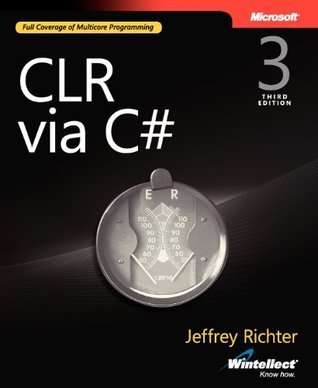What do you think?
Rate this book


898 pages, Paperback
First published July 12, 2006
- author here promotes the usage of Int32 instead of int, Int64 instead of long, etc.
The C# language specification states, ‚ÄúAs a matter of style, use of the keyword is favored over use of the complete system type name.‚Ä� I disagree with the language specification; I prefer to use the FCL type names and completely avoid the primitive type names. In fact, I wish that compilers didn‚Äôt even offer the primitive type names and forced developers to use the FCL type names instead.
Personally, I don’t like properties and I wish that they were not supported in the Microsoft .NET Framework and its programming languages.
Fun observation: when I tested this code on my machine, the CPU usage on my 8-processor machine went all the way up to 100 percent, of course. Because all the CPUs were busy, the machine got hotter and the fan got a lot louder!
After processing completed, the CPU usage went down and the fan got quieter. Fan volume is a new way of verifying that
everything is working as it should.